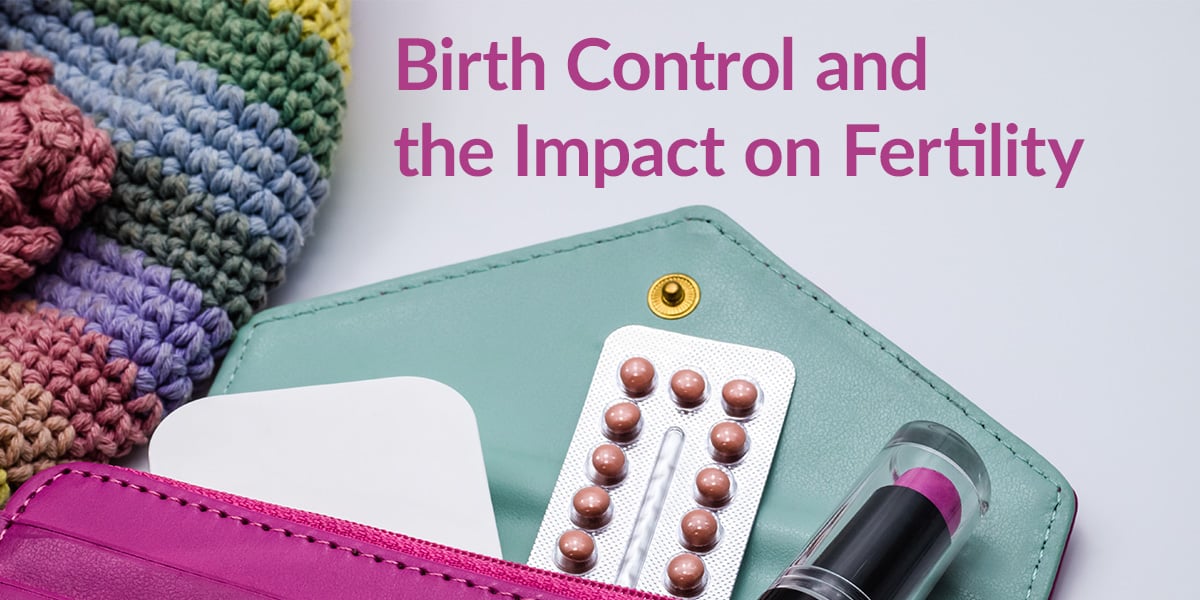The Impact Of Over-the-Counter Birth Control On Reproductive Rights

Table of Contents
Increased Access and Reduced Barriers
The potential benefits of over-the-counter birth control are significant, particularly concerning increased access and reduced barriers to essential reproductive healthcare. This shift could dramatically improve healthcare equity and empower individuals to manage their reproductive health.
Improved Accessibility for Underserved Populations
Over-the-counter birth control could be transformative for low-income individuals, those in rural areas, and minority groups who face significant hurdles in accessing traditional healthcare services.
- Reduced costs: Eliminating doctor's visit fees and prescription costs makes birth control significantly more affordable.
- Elimination of appointment scheduling: OTC access removes the need for appointments, which can be difficult to schedule for those with limited time or transportation.
- Easier access in underserved communities: Pharmacies are often more readily available than healthcare clinics in underserved areas, making OTC birth control more accessible.
The correlation between lack of access to birth control and unintended pregnancies is well-documented. Studies consistently show that improved access leads to a reduction in unintended pregnancies and abortions. Making birth control readily available over-the-counter could significantly mitigate this disparity and promote reproductive health equity.
Enhanced Convenience and Privacy
Beyond affordability, OTC birth control offers enhanced convenience and privacy. The ability to discreetly purchase birth control empowers individuals to manage their reproductive health without the perceived stigma or barriers of a doctor's visit.
- Discreet purchasing: Individuals can purchase birth control without disclosing personal health information to a healthcare provider.
- Self-management of reproductive health: OTC access allows for greater autonomy and control over one's body and reproductive choices.
- Increased control over one's body: This convenience fosters a sense of empowerment, allowing individuals to proactively manage their health.
The psychological benefits of having control over reproductive choices are significant. This autonomy promotes personal responsibility and can improve overall well-being.
Potential Concerns and Risks
While the advantages of over-the-counter birth control are substantial, potential concerns and risks warrant careful consideration. These concerns require proactive mitigation strategies to ensure safe and responsible use.
Misinformation and Improper Use
The risk of misinformation and improper use is a major concern surrounding OTC birth control. Without proper guidance, individuals might use birth control incorrectly, leading to reduced effectiveness or adverse health consequences.
- Incorrect dosage: Misunderstanding instructions can lead to ineffective contraception.
- Interactions with other medications: Certain medications can interact negatively with hormonal birth control.
- Lack of awareness of side effects: Individuals may not be fully aware of potential side effects and how to manage them.
Addressing this requires comprehensive public health campaigns, easily accessible educational resources, and clear, concise labeling on OTC birth control products. These measures can significantly mitigate the risks associated with improper use.
Impact on Comprehensive Sexual Health Education
The increased availability of OTC birth control raises questions about the potential impact on comprehensive sexual health education and counseling. While convenient, OTC access shouldn't replace essential education and ongoing healthcare.
- The importance of understanding risks and benefits: Individuals need accurate information to make informed choices about different birth control methods.
- The need for ongoing healthcare: Regular check-ups are crucial for managing potential health concerns and ensuring the continued effectiveness of birth control.
- Potential for neglecting other aspects of sexual health: Focusing solely on contraception might neglect other essential aspects of sexual health, such as sexually transmitted infection (STI) prevention and testing.
Ensuring access to comprehensive sexual health services remains crucial, even with widespread OTC birth control availability. These services provide essential support and guidance, complementing the convenience of OTC options.
Equity Concerns & Access to Different Methods
Even with OTC availability, equity concerns remain. Not all birth control methods are suitable for OTC distribution, creating potential disparities in access.
- Cost differences between methods: Some methods may remain prohibitively expensive even without a prescription.
- Potential limitations on the types of birth control made available OTC: The range of OTC options might be limited, excluding individuals who require specific methods.
- Impact on individuals needing specific methods: Individuals with specific health conditions might still require a prescription for appropriate birth control.
Policies must address these disparities to ensure equitable access to a range of birth control methods for all individuals, regardless of their circumstances.
The Legal and Ethical Landscape
The legal and ethical implications of over-the-counter birth control are complex and require careful consideration. Balancing increased access with safety and addressing diverse viewpoints is crucial.
Regulatory Frameworks and Safety Standards
Robust regulatory oversight is paramount to ensure the safety and efficacy of OTC birth control. Stringent regulations are needed to prevent the distribution of counterfeit or substandard products.
- FDA approval process: Rigorous testing and approval are necessary to guarantee product safety and effectiveness.
- Ongoing monitoring: Post-market surveillance is crucial to identify and address any potential safety concerns.
- Potential for counterfeit products: Strict regulations can help prevent the proliferation of counterfeit products that could compromise safety.
A strong regulatory framework is essential to balance increased access with the crucial need for safety and quality control.
Religious and Moral Objections
Acknowledging and addressing religious and moral objections to wider access to birth control is essential for a productive societal conversation. These objections raise complex ethical considerations that need careful consideration.
- Conscientious objection clauses: Balancing individual rights with the rights of healthcare providers who object to providing certain services requires careful legal navigation.
- Potential for limitations based on religious affiliations: Religious organizations might restrict access to birth control, potentially impacting healthcare access for specific communities.
- Ongoing societal discussions: Open and respectful dialogue is necessary to address differing viewpoints and find common ground.
Finding a balance between individual rights and societal values in the context of reproductive healthcare requires ongoing discussion and a commitment to inclusivity and respect for diverse perspectives.
Conclusion
The debate surrounding over-the-counter birth control is complex, involving significant implications for reproductive rights, access to healthcare, and public health. While increased accessibility offers numerous benefits, particularly for underserved populations, careful consideration must be given to potential risks, including misuse and the need for comprehensive education. Ultimately, a balanced approach that prioritizes both access and safety, alongside robust regulatory oversight and comprehensive sexual health education, is crucial for ensuring equitable and responsible access to over-the-counter birth control. Continue learning about the multifaceted aspects of over-the-counter birth control and its impact on your reproductive rights. Let's work together to ensure that access to birth control remains a key component of comprehensive reproductive healthcare.

Featured Posts
-
 Americas Moto Gp Marquezs Pole Position Maintains Perfect Start
May 29, 2025
Americas Moto Gp Marquezs Pole Position Maintains Perfect Start
May 29, 2025 -
 Venlose Parkeerplaats Fnv Ontmaskert Chauffeursuitbuiting
May 29, 2025
Venlose Parkeerplaats Fnv Ontmaskert Chauffeursuitbuiting
May 29, 2025 -
 Why Winning Riders Choose Hondas Winning Motorcycles
May 29, 2025
Why Winning Riders Choose Hondas Winning Motorcycles
May 29, 2025 -
 The Ultimate Guide To Nike Sneaker Drops In May 2025
May 29, 2025
The Ultimate Guide To Nike Sneaker Drops In May 2025
May 29, 2025 -
 New Ceo For Meyer Turku Cargotecs Appointment And Leadership Transition
May 29, 2025
New Ceo For Meyer Turku Cargotecs Appointment And Leadership Transition
May 29, 2025
